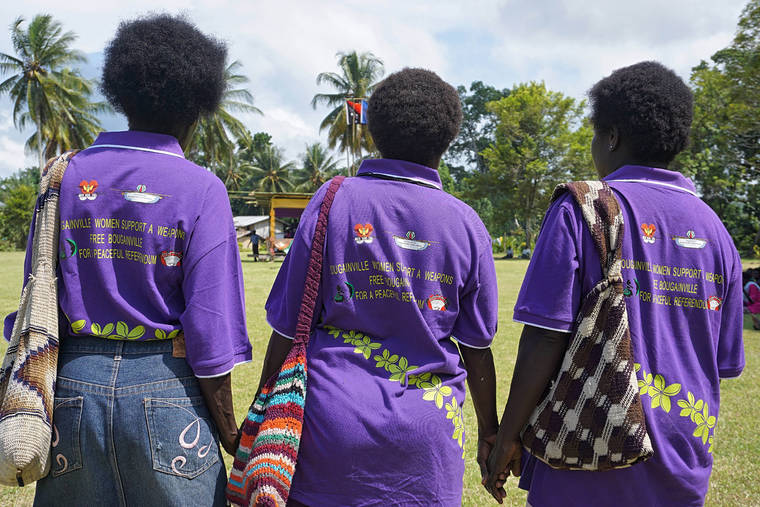WELLINGTON, New Zealand — The Pacific people of Bougainville on Saturday began voting in a historic referendum to decide if they want to become the world’s newest nation by gaining independence from Papua New Guinea.
The referendum runs over two weeks and is a key part of a 2001 peace agreement that ended a brutal civil war in which at least 15,000 people died in the cluster of islands to the east of the Papua New Guinea mainland.
Experts believe people the 250,000 people of Bougainville will vote overwhelming in favor of independence ahead of the other option, which is greater autonomy. But the vote will not be the final word.
The referendum is nonbinding, and a vote for independence would then need to be negotiated by leaders from both Bougainville and Papua New Guinea. The final say would then go to lawmakers in the Papua New Guinea Parliament.
Gianluca Rampolla, the United Nations resident coordinator in Papua New Guinea, said the world body has been working hard to ensure the vote is peaceful, transparent, inclusive and credible. He said there are 40 U.N. staffers on the ground and more than 100 international observers.
Rampolla said he thought it unlikely there would be violence during voting.
“They’ve been waiting 19 years for this historic moment,” he said. “I think they will be left with joy.”
Just over 200,000 people are eligible to vote in the referendum, with the results due to be announced in mid-December. Rampolla said the extended voting period of two weeks was due to the region’s rugged terrain.
“There are people coming on boats. There are people walking,” he said. “It’s the rainy season. There are rough seas. Flexibility is needed to adjust on the ground.”
John Momis, the president of the Autonomous Region of Bougainville, told reporters Friday the region stood on the verge of a new socio-economic and political order.
“We are trailblazers forging a new path into the unknown with the sheer determination to face any challenge that comes our way,” he said. “We will face this together as one people and one voice to decide our ultimate political future.”
In his weekly column in the Post-Courier newspaper, Papua New Guinea Prime Minister James Marape said complex discussions and negotiations would need to take place after the referendum before a political settlement could be reached.
The violence in Bougainville began in the late 1980s, triggered by conflict over an enormous opencast copper mine at Panguna. The mine was a huge export earner for Papua New Guinea, but many in Bougainville felt they got no benefit and resented the pollution and disruption to their traditional way of living.
The mine has remained shut since the conflict. Some believe it could provide a future revenue source for Bougainville should it become independent.
The civil war lasted for a decade before the peace agreement was signed. The other key aspects of the agreement were a weapons disposal plan and greater autonomy for the region ahead of Saturday’s vote.
Rampolla, the U.N. official, said the peace agreement had been one of the few in the world that had lasted so long. He said it could end as a success story if the referendum and subsequent negotiations resulted in an outcome that everybody could support.


